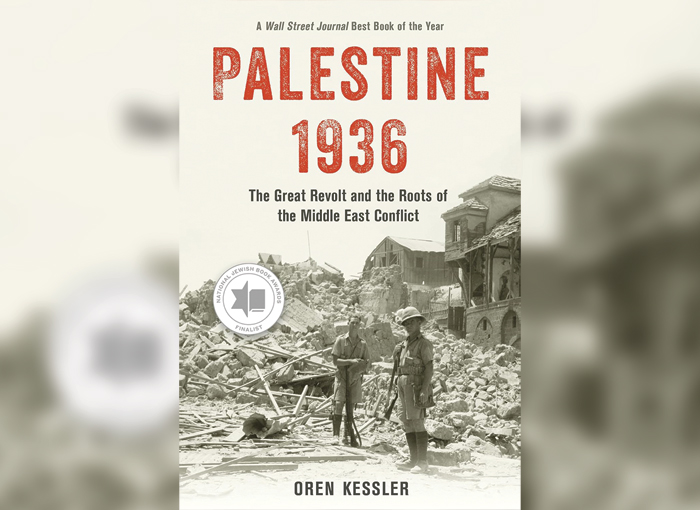
India: a growing democratic nation with rich culture, contemporary architecture, beautiful estates, modern hotels, a thriving economy and a highly skilled labor force — or — India: a backward, misogynistic country with a still existent caste system, plagued by poverty, pollution, and religious differences. This is the enigma that readers will encounter when reading “Honor,” the most recent novel by best-selling author Thrity Umrigar.
Protagonist Smita is a 34-year-old journalist, born in Mumbai. Readers will learn that she and her family left India for the United States when Smita was twelve years old. The relocation happened under extenuating circumstances that are not revealed until later in the story. Her father, a university professor, was hired to teach at a college in Ohio. Smita does not have fond memories of her homeland, and although her job takes her all over the planet, she has a personal vow never to return to India. This changes when her colleague and fellow journalist at the same magazine, Shannon, is sidelined with a broken hip while on assignment in Mumbai. Smita is vacationing in the Maldives when she receives a call from Shannon with the news of her injury. Reluctantly, Smita travels to India to be with her friend, who will require extensive surgery to recover.
Shannon convinces Smita to finish her latest assignment – an article about an honor killing in Birwad, a village about 500 kilometers from Mumbai. Meena, a once- beautiful Hindu woman, had fallen in love with Abdul, a very kind Muslim man. They secretly married, and Meena went to live with Abdul on the outskirts of his village. When Meena’s two brothers and their village leader learned of her marriage, they became enraged. The “honor” of the family and the entire village had been desecrated. They needed to remedy the situation, and so one night the brothers attacked Abdul at his home. They poured kerosene over him and set him on fire. Meena tried desperately to save her husband, but she was badly burned by the flames. Abdul died, and his mother was able to bring Meena to a hospital. She survives but is badly disfigured.
At the hospital, Meena meets Anjali, a feisty human rights lawyer. Anjali decides to take Meena’s plight to the courts and try the brothers for murder. Together they try to apply the rule of law to the brothers, who plead to the judge that they were simply following the rules of their culture in order to restore “honor” to their family. Several months go by, and now the judge is about to deliver his verdict.
At this point, Shannon hands off the article to Smita, who must interview the victim, the perpetrators (who are out on bail), the lawyer, and the head of the village council. To travel to and from the village and to help her with translation, Smita is introduced to Shannon’s friend, Mohan, the handsome and highly educated son of an Indian diamond merchant. While Meena symbolizes all that is wrong with India, Mohan represents the modern, high-tech, progressive nation. He is very proud of his country and cannot understand why Smita does not share his views. Spoiler alert – readers will probably guess that romance ensues, and they will be correct.
The reporter and her companion travel to Birwah and meet Meena, her young daughter, and her angry mother-in-law. Mohan’s eyes are opened to the obscene poverty and the unhealthy living conditions of the village. When Smita interviews Meena’s brothers, both she and Mohan are unable to comprehend their lack of empathy for their sister. Call it what you may — religious extremism, superstition or just plain old racism – these are the attributes of an illiterate society who put their perspective of “honor” before the sanctity of human life.
Despite our advances in technology, communication and science, there are still those who will ostracize, discriminate against and even murder those who do not share their religious beliefs.
Let us not single out members of the less educated of India as the only society that supports this brand of religious extremism that produces misogyny, hatefulness of other religions, racism and “honor” killings. Despite our advances in technology, communication and science, there are still those who will ostracize, discriminate against and even murder those who do not share their religious beliefs.
Ms. Umrigar succeeds in showing us both sides of modern India. The novel is interesting to read. The narration sometimes changes from Smita to Meena, thus enhancing the narrative by presenting different perspectives on their contrasting lives. Readers will not want to put this book down until the very end of the story.
A journalist herself, Thrity Umrigar has written for The Washington Post, The Cleveland Plain Dealer, and other national newspapers, and contributes regularly to the Boston Globe’s book pages. She has won several literary awards.
In this riveting and immersive novel, bestselling author Thrity Umrigar tells the story of two couples and the sometimes dangerous and heartbreaking challenges of love across a cultural divide.
Paul J. Starr is a recently retired systems analyst who has lived his entire life in Montréal, Canada. On Sunday mornings he is “living the dream,” hosting a two-hour Internet radio show featuring music from the 50s and 60s called “Judy’s Diner.”






















 More news and opinions than at a Shabbat dinner, right in your inbox.
More news and opinions than at a Shabbat dinner, right in your inbox.